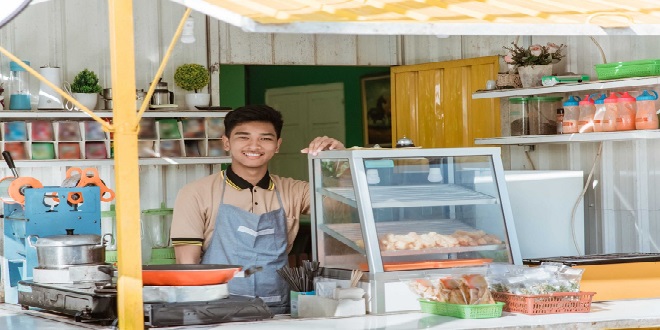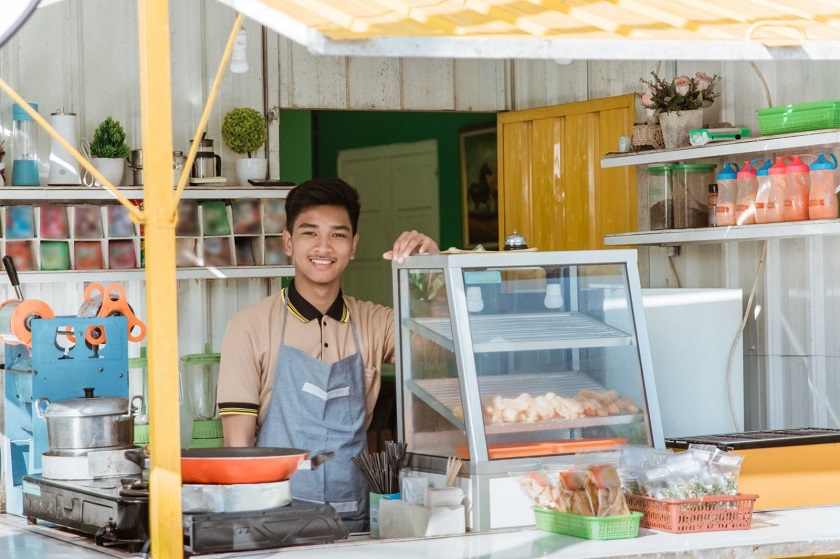
In the Philippines, micro, small, and medium enterprises (MSMEs) play a crucial role in driving the economy, comprising 99.58% of all businesses and employing 64.67% of the workforce. These enterprises, ranging from small community stores to water refilling stations and laundry services, not only contribute to the country’s GDP but also provide vital services to local communities.
Recognizing the significant contributions of MSMEs, the United Nations (UN) designated June 27 as International MSME Day to highlight their role in advancing the UN Sustainable Development Goals (SDGs). These enterprises are key drivers of local and national economies, while also supporting the livelihoods of marginalized groups, including the working poor, women, youth, and vulnerable populations.

Given the opportunities and potential that MSMEs offer, it’s no surprise that many Filipinos aspire to start their own businesses. In fact, a recent survey by Philippine research firm OCTA Research revealed that 81% of adult Filipinos have the desire to become entrepreneurs. This growing inclination reflects the recognition of MSMEs’ capacity to foster economic growth and empower individuals and communities.
If you’re among those Filipinos eager to embark on your entrepreneurial journey, here are essential tips to help you get started.
Starting an MSME in the Philippines
Embarking on the journey of entrepreneurship requires careful planning and preparation, especially when it comes to deciding on the type of business and its location. Conducting thorough market research to determine demand, foot traffic, and the appropriateness of the chosen location is crucial, particularly for businesses with physical storefronts.
Aspiring entrepreneurs can also explore the possibilities of a phygital setup, integrating both physical and digital aspects. This may include offering online payment options or venturing into e-commerce to expand their reach and tap into a broader market.
Once the business concept and location have been finalized, obtaining the necessary documentation and permits is the next step. In the Philippines, sole proprietorships must register with the Department of Trade and Industry (DTI), while partnerships and corporations need to register with the Securities and Exchange Commission (SEC). Acquiring a Mayor’s permit or municipal license from the respective city or municipality is also essential. Additionally, businesses must register with the Bureau of Internal Revenue (BIR) for proper taxation. If hiring employees, compliance with registrations from other government agencies like the Department of Labor and Employment (DOLE) and the Social Security System (SSS) is required.

While the registration and permit process may seem extensive, it ensures that businesses operate legally and responsibly, adhering to applicable laws and regulations. For a comprehensive list of registration and permit requirements, the DTI provides a compiled resource.
Beyond securing the location and necessary permits, protecting the business from potential incidents such as injuries, burglaries, and accidents is paramount. Obtaining small business insurance, like NegosyoCare, can offer peace of mind. Created by regional insurtech Igloo in partnership with Malayan Insurance and GCash, NegosyoCare is a specialized insurance product tailored to the needs of MSMEs.
“MSMEs are the backbone of the economy, but they often operate on tight budgets and have limited access to financing. This leaves them vulnerable when unexpected events disrupt their operations. That’s why having small business insurance, such as NegosyoCare, is crucial. It offers affordable and accessible coverage, providing these businesses with the protection they need without straining their finances,” explained Mario Berta, Igloo Philippines Country Manager.
NegosyoCare is available through GCash’s GInsure marketplace, with premiums starting at P160 for one-month coverage and up to P525 for one-year coverage. It provides coverage for accidental deaths, total permanent disability, disablement or dismemberment due to accidents, with benefits of up to P50,000. Additional benefits include medical reimbursement for accidents (up to P5,000), fire cash assistance (P10,000), and coverage for burglary and housebreaking (P10,000).
While these tips provide a starting point, running a business in the Philippines entails various aspects. By following these essential steps and considering small business insurance like NegosyoCare, aspiring entrepreneurs can lay a solid foundation for success. Protecting your small business is made convenient with NegosyoCare, available at the GCash GInsure Marketplace.







